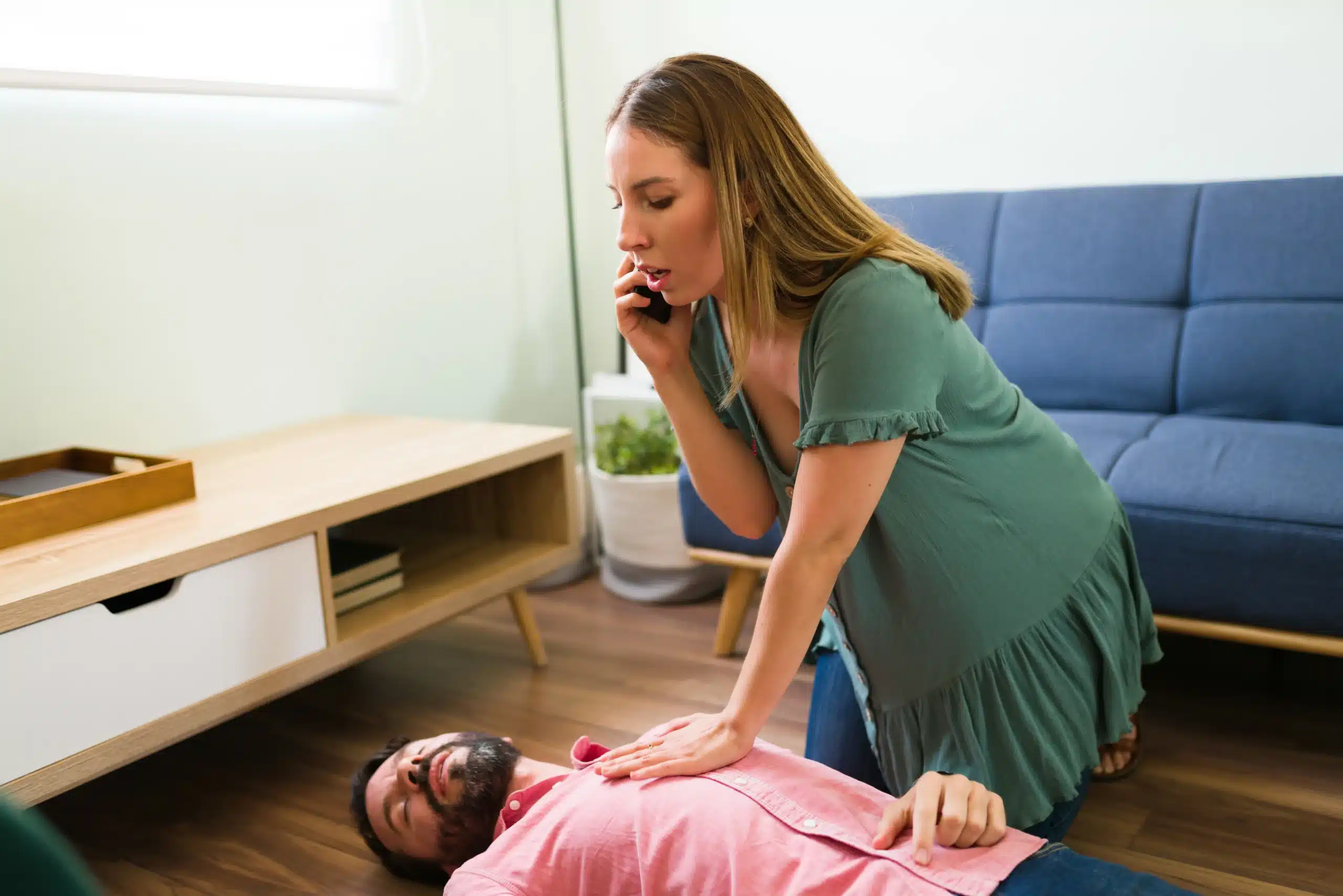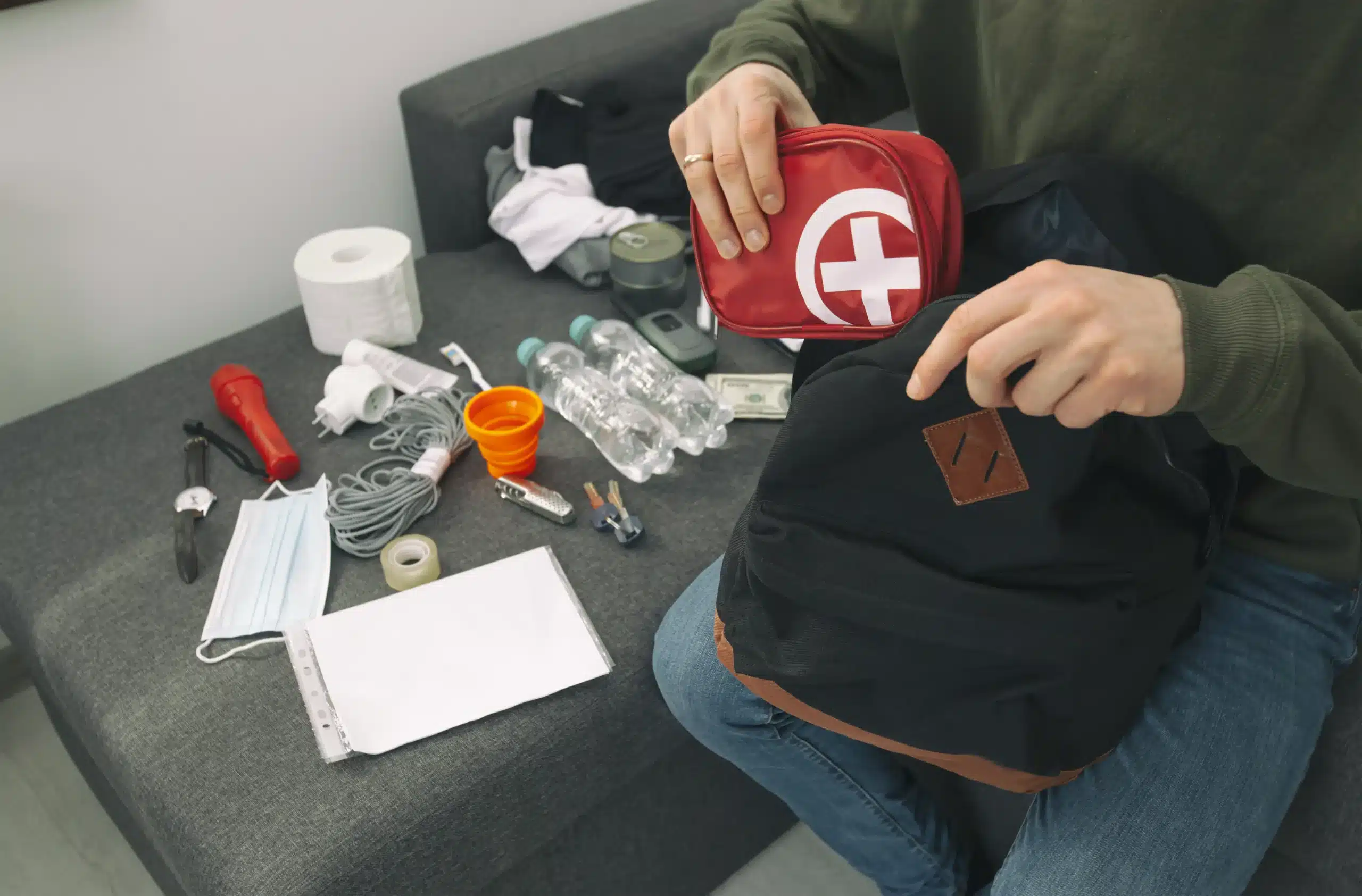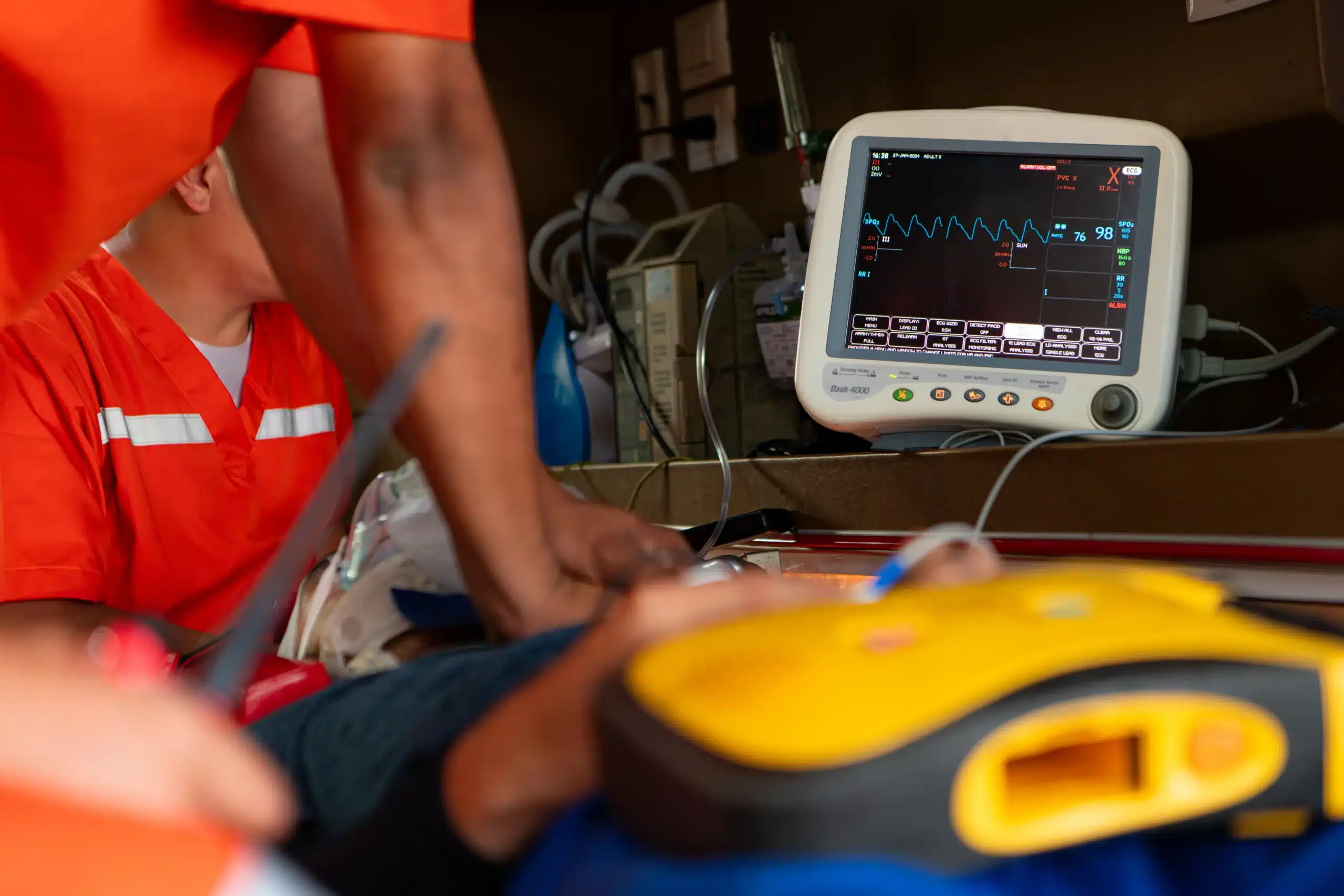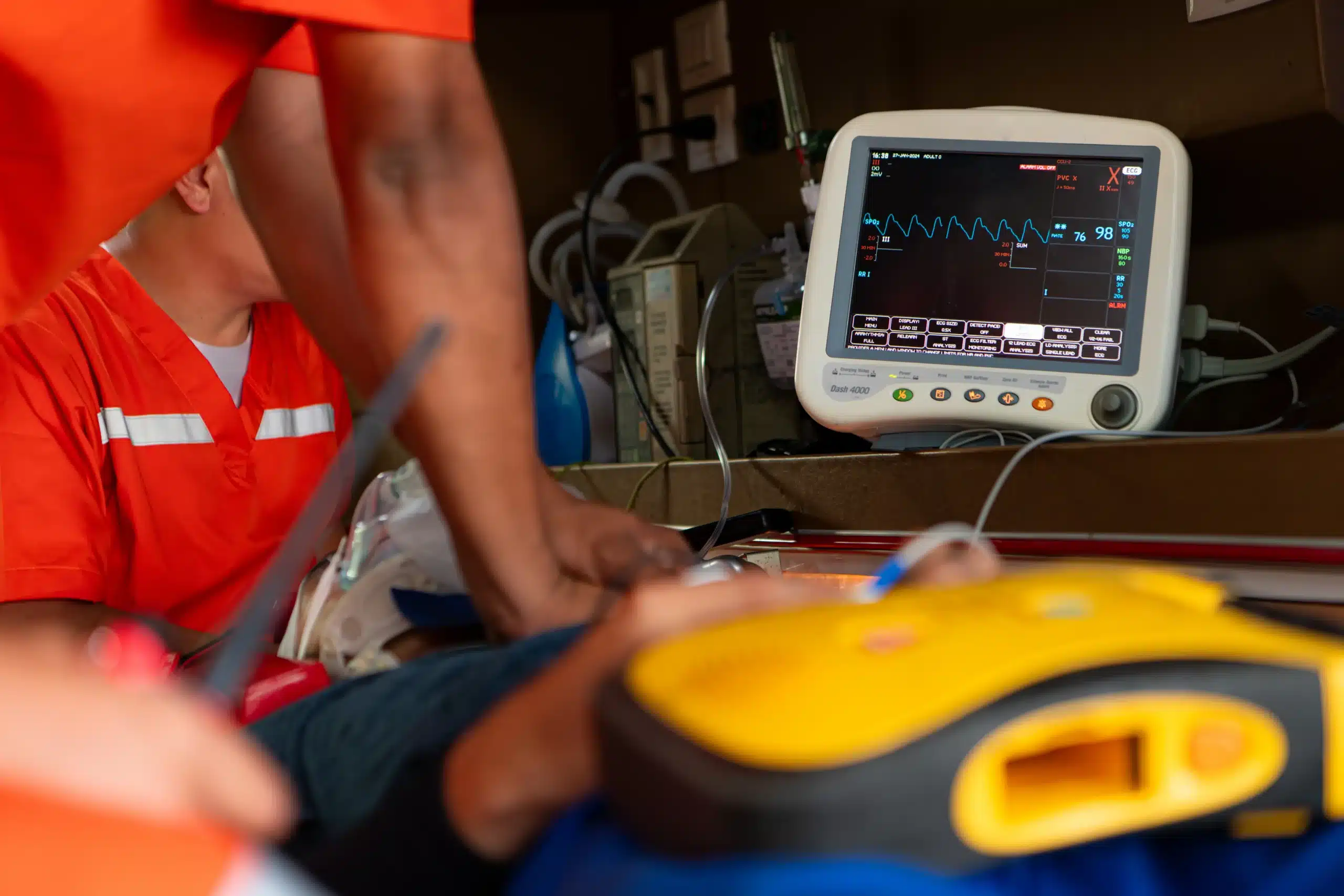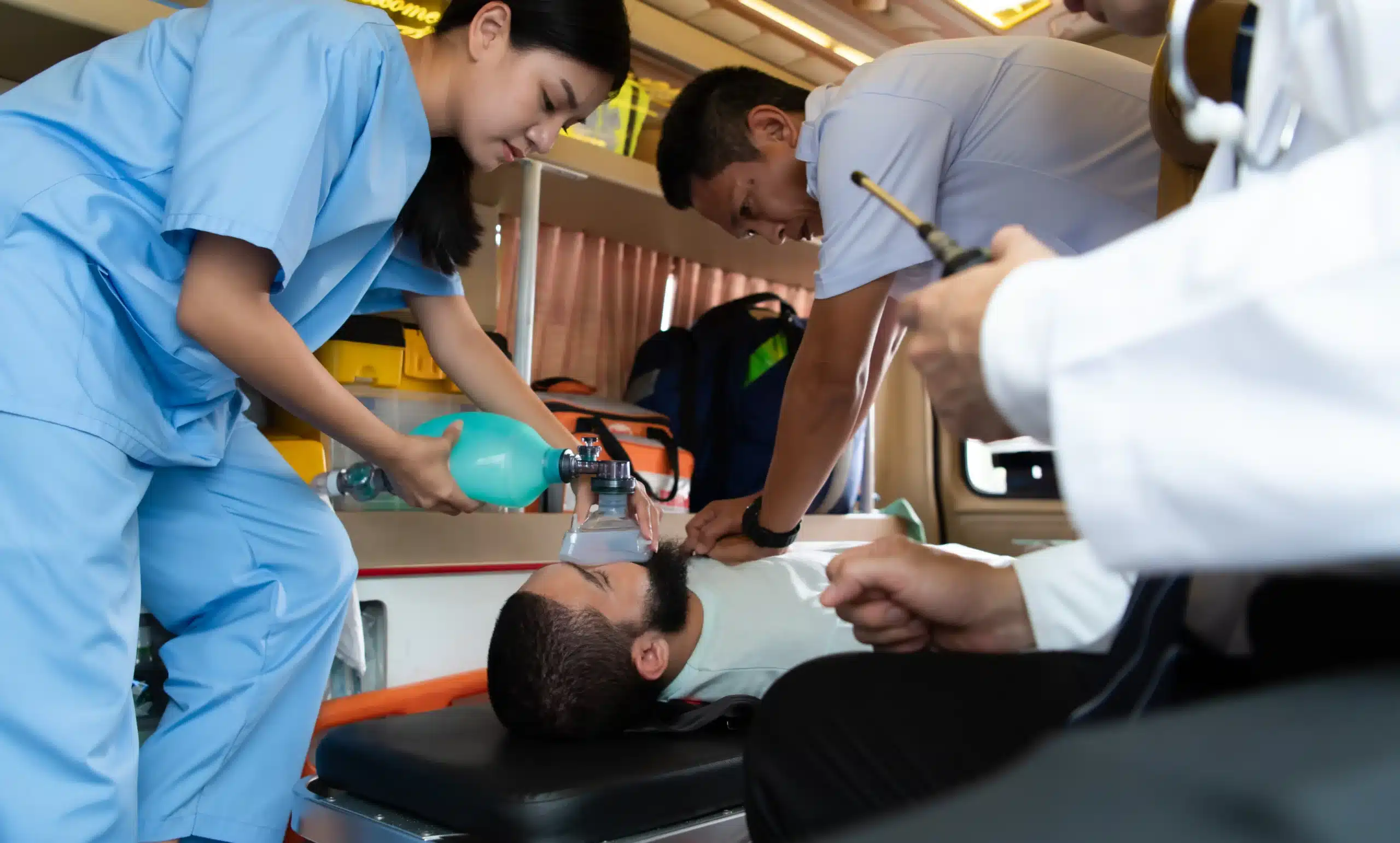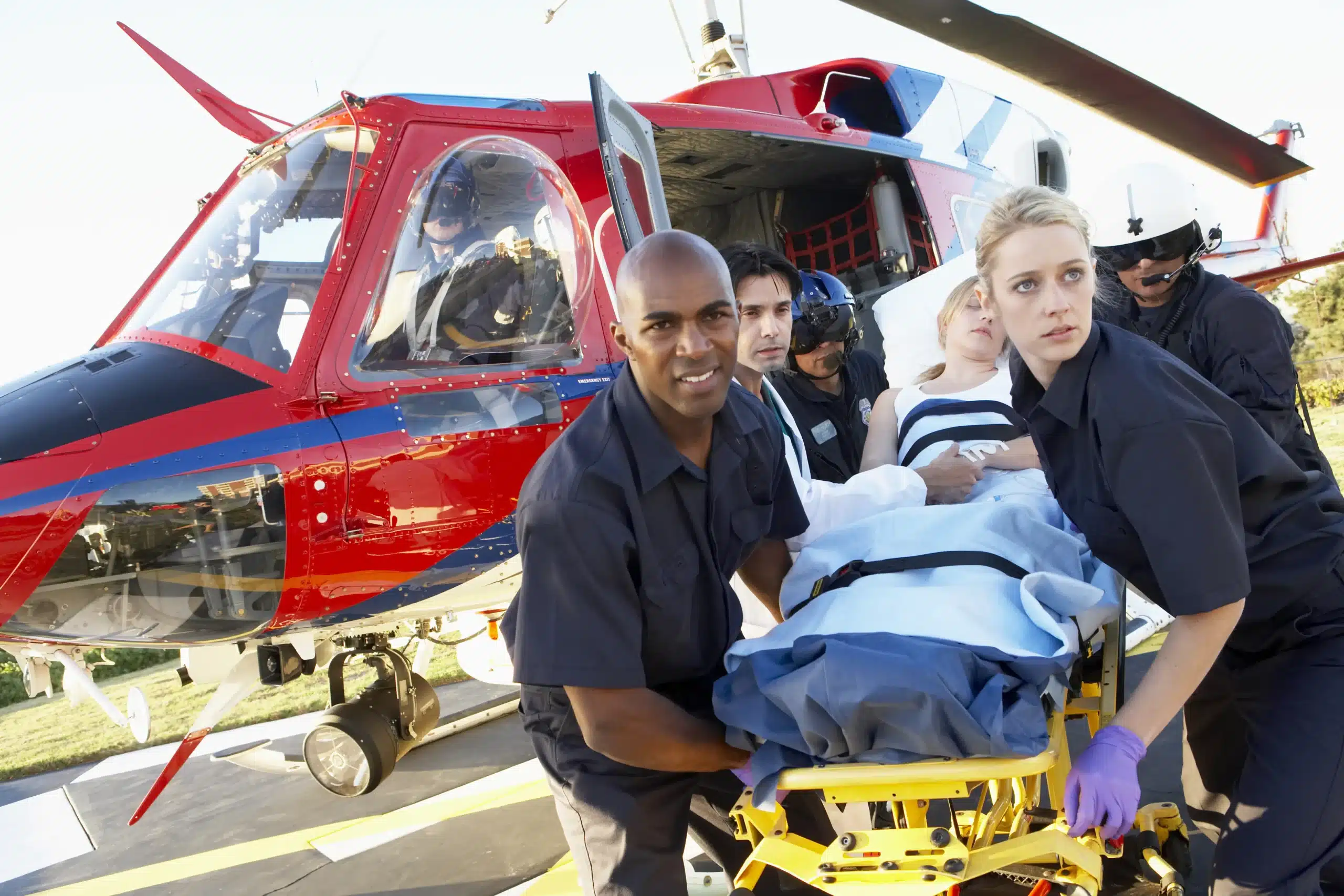Faced with a medical emergency, would you know what to do? Learning CPR can equip you with the skills and confidence to respond effectively, potentially making all the difference. This comprehensive guide explores the world of CPR, from understanding its core principles to finding the perfect CPR classes in Roseville for you. We’ll cover various aspects of CPR training, including different learning formats, certification options, and what to expect in a typical class. We’ll also address common misconceptions and discuss the long-term value of CPR certification. Let’s get started.
Key Takeaways
- CPR empowers you to save lives: Learning CPR equips you to handle emergencies and potentially make a real difference. Find a course that fits your schedule and learning preferences.
- Finding the right CPR class requires research: Consider factors like certification type, course format (in-person, blended, or online), and the training provider’s reputation and schedule.
- Maintaining CPR skills is an ongoing process: Regular practice and refresher courses are essential for staying prepared and confident in your abilities to respond effectively in emergencies.
What is CPR and Why Does it Matter?
Learning CPR can feel empowering. It equips you to handle emergencies and potentially save a life. But what exactly is CPR, and why is it so important? Let’s break it down.
What is CPR?
CPR stands for Cardiopulmonary Resuscitation. It’s a lifesaving technique used when someone’s breathing or heartbeat has stopped, such as during a heart attack or near-drowning incident. CPR involves chest compressions, which manually pump the heart to circulate blood to the brain and other vital organs. Sometimes, it also includes rescue breaths. The goal is to keep oxygenated blood flowing until professional medical help arrives. You can find more information on standard CPR procedures at Darwyn Health.
Why is CPR Important?
CPR can dramatically increase someone’s chances of survival after cardiac arrest. The American Red Cross notes that CPR can double or even triple a person’s survival rate. Considering the hundreds of thousands of cardiac arrests that happen each year, knowing CPR can make a real difference. It empowers you to take action in a critical situation and potentially save a life.
Common CPR Training Misconceptions
There are a few common misconceptions about CPR that are important to address:
- Myth 1: Mouth-to-mouth is always necessary before chest compressions. Actually, current guidelines prioritize starting with chest compressions, especially for adults. Heart Start CPR offers more information on this and other CPR myths.
- Myth 2: CPR alone can restart a heart. CPR is vital for maintaining blood flow, but it’s not a guaranteed solution for restarting a heart. It’s a bridge to more advanced medical care. You can learn more about the realities of CPR at Reeves Training.
- Myth 3: You need to be certified to perform CPR. While formal training is valuable, it’s better to attempt CPR in an emergency than to do nothing at all, even if you’re not certified. Emergency First Response discusses this misconception in more detail. In a life-or-death situation, any attempt at CPR can be better than no attempt.
Best CPR Training Providers in Roseville
Finding the right CPR training can feel overwhelming with so many options. To simplify your search, I’ve compiled a list of reputable providers in Roseville and nearby areas. No matter which provider you choose, remember that regular practice is key to maintaining your skills.
Rocklin CPR Classes
Rocklin CPR Classes offers a variety of American Heart Association (AHA) certified courses, including BLS, ACLS, PALS, and First Aid. They’re a great option for comprehensive training that meets a range of needs. Serving Rocklin, Roseville, and Sacramento makes them convenient for people throughout the region. They also offer discount group classes. You can contact them directly to learn more.
American Red Cross
The American Red Cross in Roseville offers CPR classes in several formats—in-person, online, or a blended approach. In-person classes provide hands-on training, leading to a two-year certification that meets OSHA requirements. This flexibility is helpful for those with busy schedules or varied learning preferences.
NorCal Emergency Medical Training
NorCal Emergency Medical Training provides CPR and other emergency medical training in Roseville and Rancho Cordova. As an authorized American Heart Association Training Center in the Greater Sacramento area, they offer high-quality instruction and certification.
Other Local Providers
Looking for additional options? Safety Training Seminars in Roseville also offers AHA-certified courses in CPR/First Aid, BLS, ACLS, and PALS. Their flexible scheduling and blended learning options are a bonus for busy professionals.
Choose the Right CPR Class
Finding the right CPR class means thinking about a few things, like how you learn best and what your schedule looks like. Let’s break down the key points to help you choose.
In-Person, Online, or Blended Learning: What’s Best for You?
CPR training is offered in a few different formats. In-person classes give you hands-on learning and direct interaction with an instructor. This works well for people who learn best by doing and like real-time feedback. Online courses offer flexibility, so you can learn at your own pace from anywhere with internet access. Keep in mind that online learning usually doesn’t include the hands-on practice that some certifications require, like those you might need to meet OSHA requirements. Blended learning combines online instruction with in-person skills sessions. This can be a good way to fit training into a busy schedule while still getting practical experience.
Class Duration and Structure
How long a CPR class lasts depends on the type of course and who’s doing the certifying. Basic CPR courses can take a few hours, while more advanced certifications like ACLS or PALS might take longer. Look for a course structure that works for your learning style. Some classes focus on lectures, while others emphasize hands-on practice. Many providers offer a mix of both for a well-rounded experience.
Certification Options and Requirements
Different CPR classes offer different certifications. Make sure the class you choose meets your professional requirements. Healthcare providers often need certifications like BLS from the American Heart Association. Other professions may require certifications that meet OSHA guidelines. Check with your employer or licensing board to see what you need. Remember to check how long your certification is good for, as most need to be renewed every two years.
Flexible Scheduling
It can be tough to fit everything in, so finding a class that works with your schedule is important. Many CPR training providers offer various schedules, including weekday, evening, and weekend classes. Some also offer on-site training for groups, which can be helpful for workplaces or community organizations. Explore the different scheduling options to find what works for you. Don’t let a busy schedule stop you from learning this important skill.
CPR Class Costs & Value in Roseville
Finding the right CPR class often involves balancing cost with the value you receive. Let’s break down what you can expect to pay for CPR certification in Roseville and how to find the best fit for your budget.
Average CPR Class Prices
CPR class prices in Roseville vary based on several factors, including the type of certification (BLS, ACLS, PALS, etc.), the course format (in-person, blended learning, or online), and the training provider. Generally, basic CPR and First Aid classes range from $75 to $125. More advanced certifications like ACLS and PALS typically cost more. Check with specific providers like Rocklin CPR Classes for their most up-to-date pricing. In-person classes, while sometimes more expensive, offer valuable hands-on practice. Roseville CPR classes are designed to be accessible and fit various schedules, with options including in-person, blended learning, and traditional classroom settings. You can learn more about CPR courses in Roseville through this helpful guide.
Discounts and Promotions
Many CPR training providers offer discounts and promotions to make their courses more affordable. Look for discounts for groups, students, or returning customers. Some providers, like the American Red Cross, occasionally have promotions on training materials or online courses. Check directly with the provider or browse their website for current deals. For example, you might find discounts on training supplies or emergency preparedness equipment.
Group and Corporate Training Rates
If you need to train a group of employees or colleagues, ask about group or corporate training rates. Many providers offer discounted pricing for larger groups. Rocklin CPR Classes, for example, offers group discounts and has flexible scheduling options to accommodate businesses. They have a dedicated customer service team available daily to answer questions and help coordinate training.
The Long-Term Value of CPR Certification
While cost is a factor, remember that CPR certification’s value extends beyond the price. High-quality training gives you the skills and confidence to potentially save a life. Consider the long-term benefits of being prepared for an emergency. Think of it as an investment in your preparedness and the well-being of your community. If you have questions about CPR training or finding the right class, contact Rocklin CPR Classes for assistance.
What Happens in a CPR Class?
CPR classes equip you with the skills and knowledge to respond effectively during cardiac emergencies. While specifics might vary slightly depending on the provider and the level of certification you’re pursuing (like BLS, ACLS, or PALS), most classes follow a similar structure.
Course Content Overview
CPR classes typically begin with an overview of cardiovascular emergencies and the importance of immediate action. You’ll learn to recognize the signs of a heart attack, stroke, and cardiac arrest. Instructors explain the chain of survival, emphasizing early recognition, early CPR, early defibrillation, and early advanced life support. The course covers essential topics such as checking for responsiveness, calling for emergency medical services (EMS), and performing chest compressions and rescue breaths. Depending on the course, you might also learn about using an automated external defibrillator (AED) and providing first aid for choking.
Hands-on Practice
A significant portion of any CPR class involves hands-on practice. You’ll work with mannequins to simulate real-life scenarios, allowing you to develop muscle memory and gain confidence. Instructors guide you through the proper techniques for chest compressions, ensuring you understand the correct depth, rate, and hand placement. You’ll also practice rescue breaths and learn how to coordinate compressions and breaths effectively. This practical training is crucial for preparing you to respond confidently in a real emergency. These in-person classes, with their hands-on training, typically lead to a two-year certification that meets OSHA requirements.
Certification Process and Validity
Upon successful completion of the course, including demonstrating proficiency in the practical skills, you’ll receive certification from a recognized organization like the American Heart Association. This certification validates your training and signifies your readiness to provide CPR. Certifications are generally valid for two years, after which you’ll need to take a refresher course to stay up-to-date with the latest guidelines and maintain your skills. This ensures that certified individuals remain proficient and confident in performing CPR effectively.
Benefits of CPR Certification
Getting CPR certified isn’t just about checking a box; it’s about equipping yourself with skills that can make a real difference. Whether you’re pursuing it for personal growth, professional requirements, or simply to feel prepared, the benefits are substantial.
Save Lives and Build Confidence
CPR certification empowers you to respond effectively during medical emergencies. Consider this: over 500,000 cardiac arrests occur annually in the U.S. Learning CPR means you could be the one who steps in and provides immediate support, potentially bridging the gap until professional help arrives. Even if your certification has lapsed, remember that any CPR is better than none. The American Red Cross emphasizes this, urging people to take action when needed. Beyond the practical skills, CPR training instills confidence. Knowing you can handle a crisis helps you stay calm and focused under pressure—a valuable asset in any emergency.
Career Advantages
A CPR certification can open doors in your professional life. Many fields, especially those involving healthcare, education, and childcare, view CPR training as essential. Listing this qualification on your resume can give you a competitive edge, demonstrating your commitment to safety and preparedness. Employers often prioritize candidates with these skills, knowing they can rely on them in critical situations. Understanding the costs associated with CPR training helps you make informed decisions about investing in your professional development. Check out Rocklin CPR Classes for their offerings.
Workplace Requirements
Some workplaces require CPR certification as a condition of employment. This is particularly common in healthcare settings, where staff regularly encounter situations requiring immediate medical assistance. OSHA-compliant certification, typically earned through in-person training, is often the standard. Even if it’s not mandatory, having current CPR certification can make you a more valuable employee and enhance your career prospects. Rocklin CPR classes offer a variety of options to meet these needs, ensuring you can find a course that fits your schedule and learning style.
Start Your CPR Training in Roseville
So, you’re ready to learn CPR? Great! This section breaks down how to begin your training in Roseville. We’ll cover finding the right provider, preparing for your class, and keeping your skills sharp after certification.
Find the Right Provider
Choosing a reputable CPR training provider is the first step. Look for providers offering a range of courses, from basic CPR and First Aid to advanced certifications like BLS, ACLS, and PALS. Rocklin CPR Classes offers all these courses and serves the Roseville area. For a nationally recognized certification, train with an American Heart Association (AHA) Training Center, like Safety Training Seminars, which partners with Rocklin CPR Classes. This ensures your training meets industry standards and your certification is widely accepted.
Prepare for Your CPR Class
CPR training is designed to fit into your busy schedule. With flexible scheduling and diverse course formats—including in-person, blended learning, and online options—you can find a class that works for you. Before registering, check with your chosen provider about the different formats available. For example, in-person CPR classes often result in a two-year OSHA-compliant certification. Knowing what format you need helps narrow your search. Also, review any pre-course materials your instructor provides. This will give you a head start and help you get the most out of your training.
What to Do After Certification
Congratulations on completing your CPR training! Now, it’s essential to maintain your skills. Regular practice is key to staying confident and responding effectively in a real emergency. Consider refresher courses or practice sessions to keep your knowledge and skills fresh. Also, research CPR training costs in your area, like Rocklin, to understand the value different courses offer. While cost is a factor, prioritize high-quality training and a recognized certification. This ensures you have the skills and credentials to make a difference when it matters most.
Related Articles
- Why CPR is Critical in Healthcare – CPR and First-Aid Training
- CPR Training in Roseville: Your Complete Guide – Rocklin CPR Classes
- Busting CPR Myths and Saving Lives
- The Importance of CPR in Saving Lives – Rocklin CPR Classes
- The Science Behind Effective CPR: A Comprehensive Guide
Frequently Asked Questions
What if I’m nervous about performing CPR in a real emergency? It’s completely normal to feel apprehensive about using CPR in a high-pressure situation. That’s why hands-on practice during training is so important. It helps build muscle memory and confidence. Remember, even if you haven’t formally trained, any attempt at CPR is better than none. Focus on what you’ve learned and trust your instincts.
How do I choose between in-person and online CPR training? Think about your learning style and schedule. In-person classes offer hands-on practice and direct feedback from an instructor, which is great for kinesthetic learners. Online courses offer flexibility, allowing you to learn at your own pace, but may not include the hands-on component needed for some certifications. Blended learning combines the benefits of both.
How often do I need to renew my CPR certification? Most CPR certifications are valid for two years. Check with your certifying organization or employer for specific requirements. Renewal usually involves a refresher course to ensure you’re up-to-date on the latest guidelines.
What if I can’t afford a CPR class right now? Look for training providers that offer discounts, payment plans, or scholarships. Some community organizations may also offer free or low-cost CPR training. Remember, even basic knowledge of CPR can be lifesaving, so explore all available options.
Besides CPR, what other first aid skills are helpful to know? Learning basic first aid, such as how to control bleeding, treat burns, and manage choking, complements CPR training and enhances your ability to respond to various emergencies. Many CPR providers also offer first aid courses, allowing you to develop a comprehensive set of lifesaving skills.

